I came across Time Out New York’s list of their top 50 foreign films of all time. Although a very good list, I felt, personally, there were some omissions. I decided to come up with my own top list. 50 is a huge number for me to tackle so I also decided to scale it down to 10. Seems to be a good round number. Most of these films are in the Criterion Collection but there are a few on my list that are not, but I do feel that these few should be.
I’m also going to follow Time Out New York’s guideline of no silent film (although I do love silent films) and no films from England, Australia or any other English speaking countries.
Also, my list is going to gravitate to more contemporary films rather than classics. That’s just the way I roll!
My Favorite Foreign Films (in alphabetical order):
Band of Outsiders (1964)
dir. Jean-Luc Godard
Arthur and Franz are wannabe criminals who meet Odile, a spunky nymph played deliciously by Anna Karina. Odile tells them about a large sum of money hidden at the villa where she lives. They devise a plot to steal the money while trying to seduce Odile. What Jean-Luc Godard does in this film is take American genre and spins it into a kinetic, free film and feeds it back to the American audience.
This was my introduction to Jean-Luc Godard and the French New Wave. It brought me into an exciting world of crime, capers and a certain energy that simply cannot be matched by any modern filmmaker.
Band of Outsiders is available on Netflix.
Battle Royale (2000)
dir. Kinji Fukasaku
Set in the not too distant future, Japan has a problem with juvenile delinquency. To solve this problem the government has passed the ‘Battle Royale Act’. Junior high schools are put into a lottery and the ‘winners’ of this lottery are placed on an island and forced to kill each other until only one student remains.
The last film from a true artist, Kinji Fukasaku died only days after finishing the final cut of the film. Battle Royale is his masterpiece! It plays on so many levels from straight up, non-stop, kids killing kids violence to smart and daring social commentary. From the opening scene of the news media and paparazzi gathering together to get the first glimpse of the winner of the past battle to the lyrical beauty of the island the battle is set upon. Fukasaku plays with tone in such a masterful way. Is it torture porn or satire?
Battle Royale is available on Netflix.
Chungking Express (1994)
dir. Wong Kar-Wai
Two storylines that share the same themes of loneliness, longing and urban isolation. Chungking Express follows two police officers falling in love in the busy streets of Hong Kong while trying to get over their past loves. One falls in love with a drug trafficker and the other falls in love with a manic pixie dream girl.
Wong Kar-Wai is more interested in mood and tone rather than plot. This was one of the first films that showed me, that you didn’t need to be a plot driven movie to be successful. Wong Kar-Wai is a master of the cinematic expression that would bring joy to like minded film goers.
Chungking Express is available on Netflix.
Listen to The CriterionCast episode on Chungking Express.
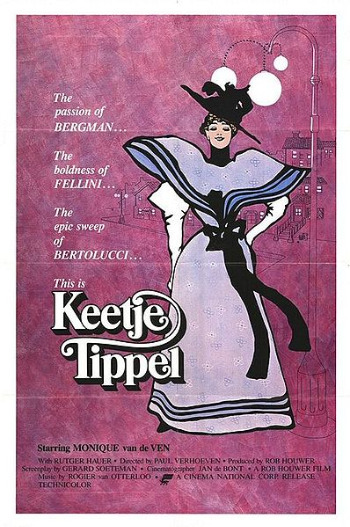
Katie Tippel (1975)
dir. Paul Verhoeven
The journey of a Dutch prostitute who brings herself out of the gutters of Amsterdam to become an upper class, elite lady. Director Paul Verhoeven is mostly known for his action packed movies (RoboCop and Total Recall) or known as the director of one of the worst films ever made (Showgirls), Verhoeven had a wide career before he came to Hollywood. The films he made in Holland in the 1970s are some of the most fascinating and interesting films about the human spirit, the power of love and the social class division you will ever see. What makes Verhoeven interesting is all of this films are character driven. From Business Is Business to RoboCop and Turkish Delight to Starship Troopers, the things that audiences hold on to are the sympathetic characters Verhoeven is latched to.
Katie Tippel is one of his best. A very complete and satisfying film with a wonderful performance of Monique van de Ven as the title role. Her naivety quickly turns into social savvy, learning to become a grand lady.
Late Spring (1949)
dir. Yasujiro Ozu
Yasujiro Ozu examines the relationship of a widowed father and his daughter. Her reluctance to get married and his concern for her single daughter, the father tricks his daughter into marriage by getting married himself, leaving her ready to leave the nest. Ozu shows an nontraditional arrangement of a traditional country. Not only is Ozu commenting on the institution of marriage but how westernized Japan is turning after World War II. This is all complimented by Ozu’s very traditional and signature style.
Late Spring is available on Netflix.
Listen to The CriterionCast episode on Late Spring.
The Leopard (1963)
dir. Luchino Visconti
This is possibly the grandest film ever made. The shear scale of this film is so extremely extravagant and lavish, that you could not have a crush on this film after viewing it. The story of a aristocratic family in Italy living during a time when the aristocracy lost its control over the people and the increase of democracy grew in the countryside. Burt Lancaster plays Prince Don Fabrizio Salina, the patriarch of this family, who must witness the changing time of his country to a new generation. The presence of this man is petering into old age as a new era in history, while all of this taking place at a party in a grand palace. Lancaster displays the prince with the weight of the world on his shoulders as time passes through his body. Men living in a changing world unable to stop this change.
Visconti tells this story set in the 1860s so well with this certain level and detail and meticulousness, you almost forget you’re watching a film made in the 1960s.
Italian Trailer
American Trailer
The Leopard is available on Netflix.
Revanche (2008)
dir. Götz Spielmann
Götz Spielmann’s Revanche was a revelation for me. After watching it for The CriterionCast, I needed to know where I could see other films by Götz Spielmann. Luckly, there are more of his films is available on Netflix Watch Instant. Revanche is a very engaging thriller where the circumstances are almost Shakespearean. An ex-con named Alex who works in an Austrian brothel, falls in love with an Ukrainian prostitute, Tamara. Desperate for money, Alex devises a plot to rob a bank in a small sleepy town. When the robbery goes wrong, a subplot involving a local cop and his wife brings Alex to a situation that is the very definition of irony.
Götz Spielmann’s use of camera, blocking and staging alone make Revanche worth watching. It feels as if the characters in the movie are part of a heavily stylized documentary. It has the realism of life but the slickness of cinema. Götz Spielmann marries these two elements with such ease, it’s almost criminal.
Revanche is available on Netflix.
Listen to The CriterionCast episode on Revanche.
Taste of Cherry (1997)
dir. Abbas Kiarostami
A suicidal man who drives through the streets of Tehran. Along the way, he searches for anyone to bury his body after he dies. Really that’s the movie. What Kiarostami does in this very minimalist film is more interesting and highly engaging than anything James Cameron does in Avatar. During the course of the film, you feel the weight of the world on this man’s shoulders. Coming to grips with the reality that he wants to kill himself. A world that is encapsulated in his car, we drive around with him seeing and hearing the streets of Tehran. Along with an ending that is so controversial, that it will leave you debating it for years to come.
Taste of Cherry is available on Netflix.
Listen to The CriterionCast episode on Taste of Cherry.
The Tin Drum (1979)
dir. Volker Schlöndorff
This is a very refreshing film. I still feel with all of its accolades, The Tin Drum is still a very under appreciated film. There is a sort of energy and excitement that goes along with just the filmmaking aspects of this movie. From the start we get a clear sense that this world being created by Schlöndorff is rooted in some sort of fantasy, almost comical. An interesting coming of age film of a boy becoming a man without the physical transformation. A man trapped in the body of a boy, going through the craziness of his hormones and the craziness of the Nazi Party in 1940s Germany.
This film was also banned in Oklahoma with citations of child pornography. This film brings up the discussion that blurs the line between art and pornography.
The Tin Drum is available on Netflix.
Listen to The CriterionCast episode on The Tin Drum.
Wages of Fear (1953)
dir. Henri-Georges Clouzot
A simple story of four men living in a poor South American town, they take a suicidal job driving two trucks full of explosive nitroglycerin from one site to another. Clouzot is a master of building suspense by using film techniques in 1953 that are still used today. From the smallest thing from drops of nitroglycerin pouring into a boulder to a thrilling 15 mph chase scene over a dirt road. Clouzet packs every frame with nuance, terror and social commentary. There is more action, suspense and thrills in this film than any Michael Bay film playing at your local movie theater.
Wages of Fear is available on Netflix.
Listen to The CriterionCast episode on Wages of Fear.


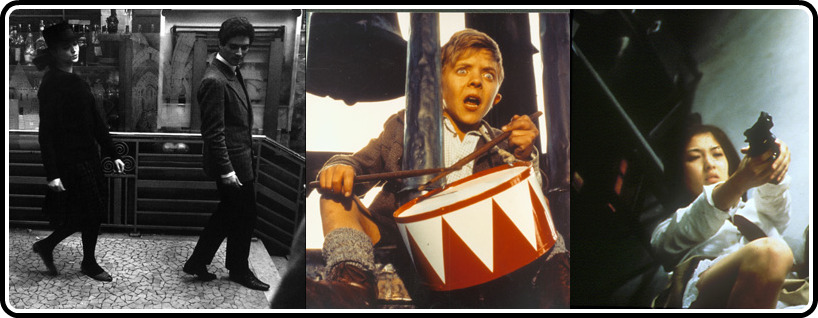
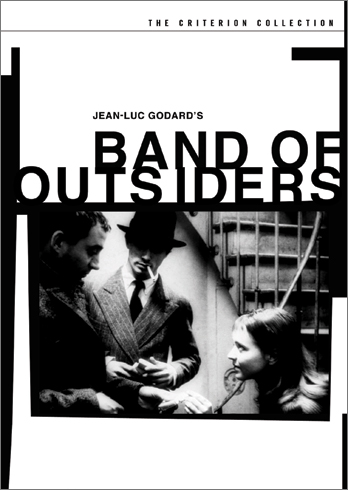
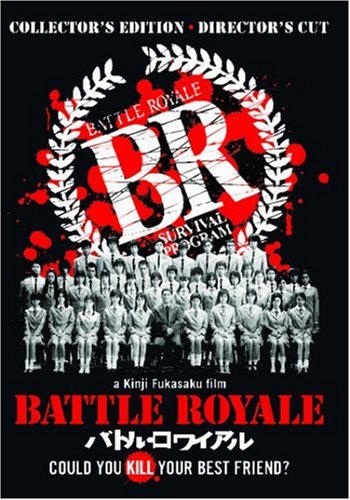


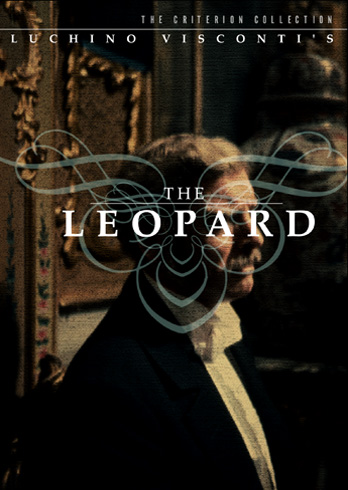

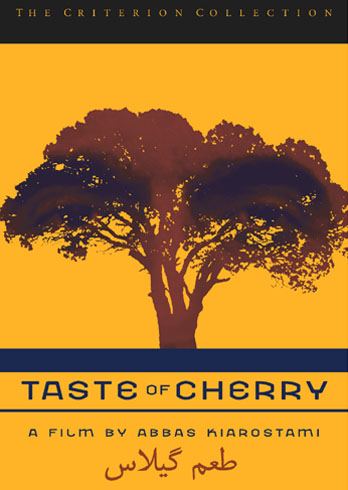
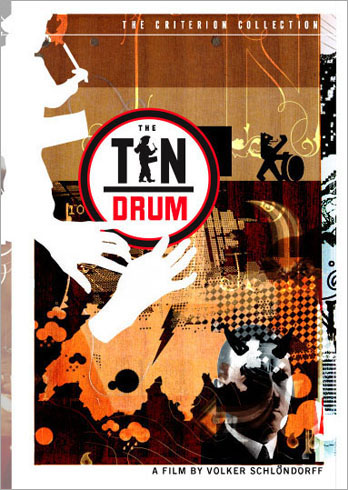
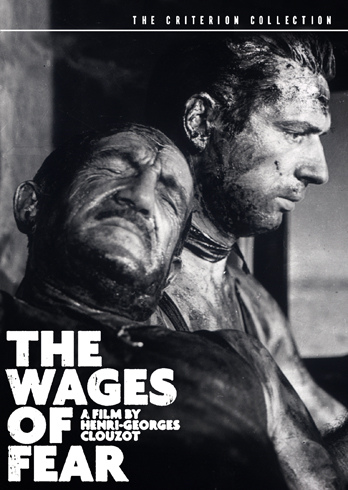
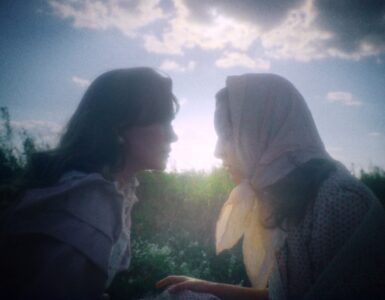
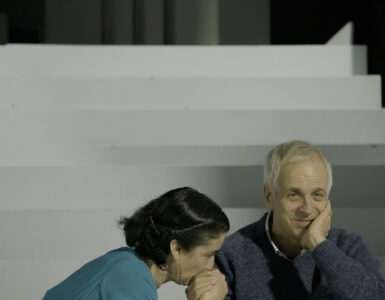

![Bergman Island (The Criterion Collection) [Blu-ray]](https://criterioncast.com/wp-content/uploads/2022/11/bergman-island-the-criterion-collection-blu-ray-400x496.jpg)
![This Is Not a Burial, It’s a Resurrection (The Criterion Collection) [Blu-ray]](https://criterioncast.com/wp-content/uploads/2022/11/this-is-not-a-burial-its-a-resurrection-the-criterion-collection-blu-ray-400x496.jpg)
![Lars von Trier's Europe Trilogy (The Criterion Collection) [The Element of Crime/Epidemic/Europa] [Blu-ray]](https://criterioncast.com/wp-content/uploads/2022/11/lars-von-triers-europe-trilogy-the-criterion-collection-the-element-of-400x496.jpg)
![Imitation of Life (The Criterion Collection) [Blu-ray]](https://criterioncast.com/wp-content/uploads/2022/11/imitation-of-life-the-criterion-collection-blu-ray-400x496.jpg)
![The Adventures of Baron Munchausen (The Criterion Collection) [4K UHD]](https://criterioncast.com/wp-content/uploads/2022/11/the-adventures-of-baron-munchausen-the-criterion-collection-4k-uhd-400x496.jpg)
![Cooley High [Criterion Collection] [Blu-ray] [1975]](https://criterioncast.com/wp-content/uploads/2022/11/cooley-high-criterion-collection-blu-ray-1975-400x496.jpg)
This is a good list Rudie_! I absolutely love several of these films. Even leaving out a plethora of older films, you still “rolled” upon a good group of amazing productions. I am glad to see Revanche listed here, as I too think that it will be well-remembered by cinephiles in the years to come.
A very great list, Rudie. But with one omission that I’m surprised about. Where is your love for Le Magnifique? :)
I love Le Magnifique but I was trying to go for different languages and different countries also different eras.
I consider it pretty courageous to go public with a Top 10 list, so props to you. There’s such a big risk of leaving out something worthwhile but I think you covered the bases nicely here. Keetje Tippel looks like the film I need to discover out of this bunch, especially being a Dutch guy myself. I remember listening to you talk about it on some episode of the podcast awhile back. I wonder if Criterion will ever consider releasing any of Verhoeven’s early stuff? (Not that I need to rely on them to watch that film!)